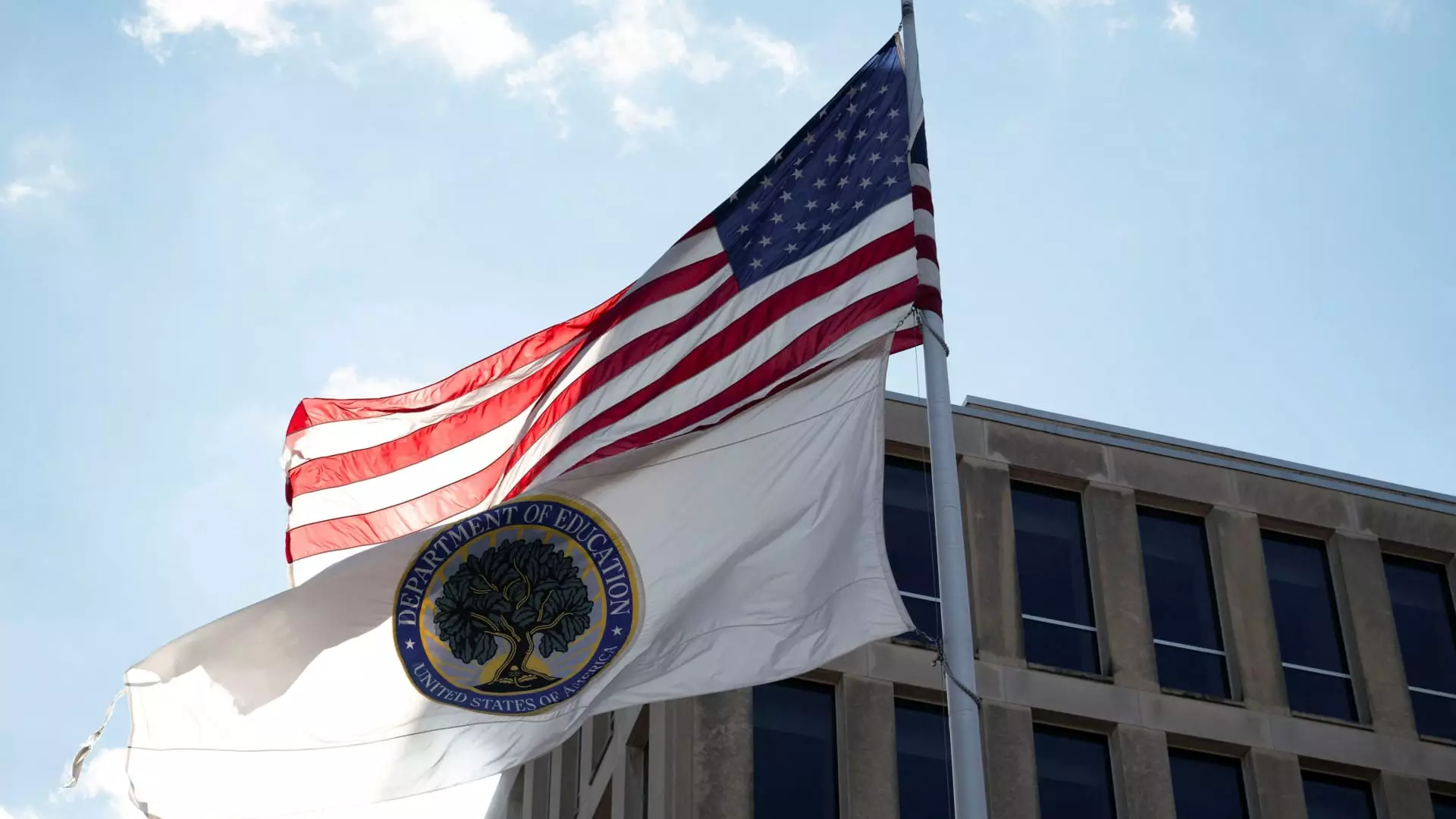In a shocking blow to federal student loan borrowers, recent staff cuts within the Department of Education are leaving the very support systems designed to assist struggling borrowers teetering on the brink of collapse. President Trump’s approach to governance—characterized by budget slashes and personnel reductions—could have severe repercussions for the 42 million Americans grappling with student loan debt that now exceeds an alarming $1.6 trillion. The recent layoffs, which eliminated key personnel responsible for addressing borrower complaints, signal not just a shift in priorities but a deeply concerning disengagement from the welfare of the American people.
With roughly 800 ongoing cases abandoned amidst these layoffs, it is alarming to ponder the fates of those whose lives are intricately tied to solutions from the Department of Education. One employee’s testimony starkly emphasized the desperation facing borrowers: “They just have to continue to wait, and maybe they go into delinquency.” Such an admission reveals an unsympathetic, bureaucratic narrative that has unforgiving implications. The delay in assistance, especially as wage garnishments and collection activities resume, is a moral failure that cannot be overlooked.
The Illusion of Support
Underneath the cruel surface of these choices lies a more insidious reality: the crippling of the Office of the Ombudsman. Initially designed as a safeguard for borrowers, this office is now rendered almost impotent. With the looming threat of executive orders aimed at undermining the department, it is as if an entire agency is destined for gradual extinction under the guise of efficiency. As staff is reduced to maintain a facade of operational integrity, the reality of bureaucratic collapse becomes evident. The elimination of specialized teams dedicated to specific programs like the Public Service Loan Forgiveness (PSLF) is particularly troubling. Borrowers who had previously found solace in expert assistance are now left with uncertainty, unsure where to turn for answers.
For millions who once dreamt of stable careers in public service, this dissolution represents not just a bureaucratic routine, but an existential crisis. “We lost that expertise,” one employee lamented, recognizing that the department’s capability to resolve student loan issues has significantly diminished—leaving vulnerable borrowers to fend for themselves without appropriate resources.
Growing Tragedy Among Borrowers
In truth, the ripples of these cutbacks are deeply felt among borrowers, particularly the most marginalized: disabled individuals, teachers, and victims of fraud seeking loan forgiveness. Just one instance, shared confidentially by a department staffer, reveals the gravity of the situation. A woman praying for relief from her student debt due to disability is plagued by fears that her support might vanish overnight. Each conversation, meant to guide her through an oppressive financial crisis, is steeped in uncertainty and anxiety. This personal narrative encapsulates not just the struggles of one individual but rather the collective burden felt by countless borrowers across the nation.
While the political elite continue to debate fiscal strategies, the lived experiences of these borrowers tell a grim story, etched with fear of actionable injustice. They are not merely statistics; they are real people with real consequences stemming from policies that prioritize coffers over compassion.
The Silence Speaks Volumes
Even more disturbing is the apparent silence from the higher echelons of power. The White House’s refusal to engage with queries regarding the state of federal assistance for student loan borrowers exemplifies an alarming lack of accountability. This refusal underscores an administration more concerned with maintaining a particular narrative than addressing the suffering of its constituents. The absence of transparency heights the risk of further detrimental policies and serves to alienate those in need of guidance most.
In the realm of public service and education, where dreams ought to be nurtured, the current trajectory is a glaring contradiction. For an administration to abdicate responsibility during a crisis is a severe indictment of its values, leaving those who work tirelessly to build better futures dangling in a precarious state. The mantra should be about support and empowerment, yet it looks increasingly like abandonment and neglect.
The situation calls for urgent attention and compassionate policy reform aimed at restoring the integrity of the federal support systems. Unfortunately, what we witness are decisions that threaten to push struggling borrowers further into financial ruin while insulating those at the helm from the repercussions of their indifference. In an era where collective empathy should guide us, it is distressingly evident that too many have forgotten the human element in this ongoing student loan saga.

